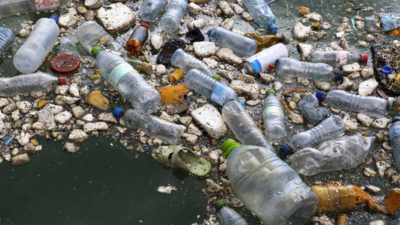
A study by the Royal Netherlands Institute for Sea Research (NIOZ) and Utrecht University has revealed that the North Atlantic Ocean contains approximately 27 million tons of nanoplastics — microscopic plastic particles smaller than one micrometer. These tiny plastics, invisible to the naked eye, pose serious threats not only to marine ecosystems but also to human health. The particles can penetrate deep into organisms, including humans, potentially causing unknown biological harm. This discovery sheds light on a previously hidden form of pollution that is far more pervasive and damaging than larger plastic debris.
27 million tons of nanoplastics saturate the North Atlantic
The research team collected water samples during an expedition aboard the research vessel RV Pelagia, traveling from the Azores to the European continental shelf. By filtering particles smaller than one micrometer and analyzing their chemical signatures with advanced mass spectrometry techniques, scientists were able to quantify the sheer volume of nanoplastics floating in the ocean. This study marks the first-ever accurate measurement of nanoplastics in the marine environment, revealing that these particles outnumber larger microplastics and macroplastics in the North Atlantic alone.
Pathways into the ocean and ecosystem impact
Nanoplastics enter marine ecosystems through multiple routes. They often result from the breakdown of larger plastic debris exposed to sunlight, but can also be carried by rivers or transported through the atmosphere, falling into oceans via rain or settling directly on the surface. These microscopic plastics can infiltrate all levels of the ocean food chain, from bacteria to fish and even top predators such as humans. Scientists are particularly concerned about their ability to penetrate tissues, including brain tissue, raising urgent questions about their effects on health and ecosystems.
The urgent need to prevent further pollution
Despite the massive quantity of nanoplastics already present, experts warn that cleanup is virtually impossible due to their tiny size and widespread distribution. The study emphasizes the critical need to prevent further plastic pollution entering marine environments. Ongoing research aims to understand the full impact of different types of nanoplastics and to determine if similar levels exist in other oceans worldwide. This discovery calls for stronger global action to reduce plastic waste and protect both ocean life and human health from the silent but pervasive threat of nanoplastics.










